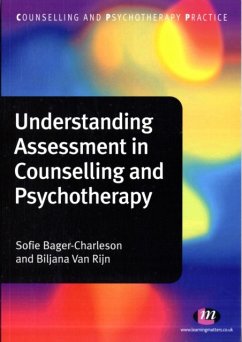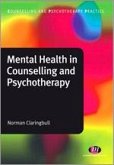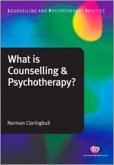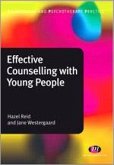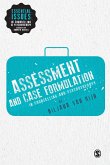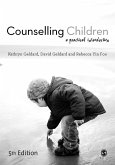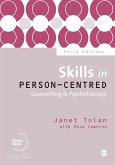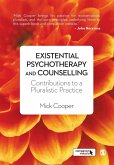This book offers students and trainees a thorough guide to clinical assessment. It covers different types of clinical assessment and explores the implications of the alternative views on clients' needs and treatment. It explores clinical assessment as an 'art and science' and brings the reader up to date with new requirements placed on therapists in both organisational and clinical practice based settings. In addition to outlining models for clinical assessment, it looks at the use of evidence-based practice in assessments. There are sections on doing assessments within organisations as well as from private practice.
'The book is laid out well - it is accessible and easy to use, there is a synopsis of each chapter early on in the book and a summary at the end of each chapter, along with suggested further reading. There are activities and reflection points to prompt the reader to think about their role as an assessment counsellor, the hopes and expectations of assessments and the various necessary factors to be mindful of - the therapeutic alliance, the business side of the counselling frame, the client's motivation and psychological mindedness, achieving the balance between listening and containment and assessing risk. The book is relevant to therapists from various theoretical orientations - psychodynamic, humanistic, CBT and existential - which provides further fuel for thought. It is aimed at counsellors working in organisations and private practice. Towards the end of the book, generously, there is an assessment form, which readers may find useful' -
Rafiya Hanid,
Counsellor, University of West London; Head of Student Counselling
Rafiya Hanid,
Counsellor, University of West London; Head of Student Counselling
